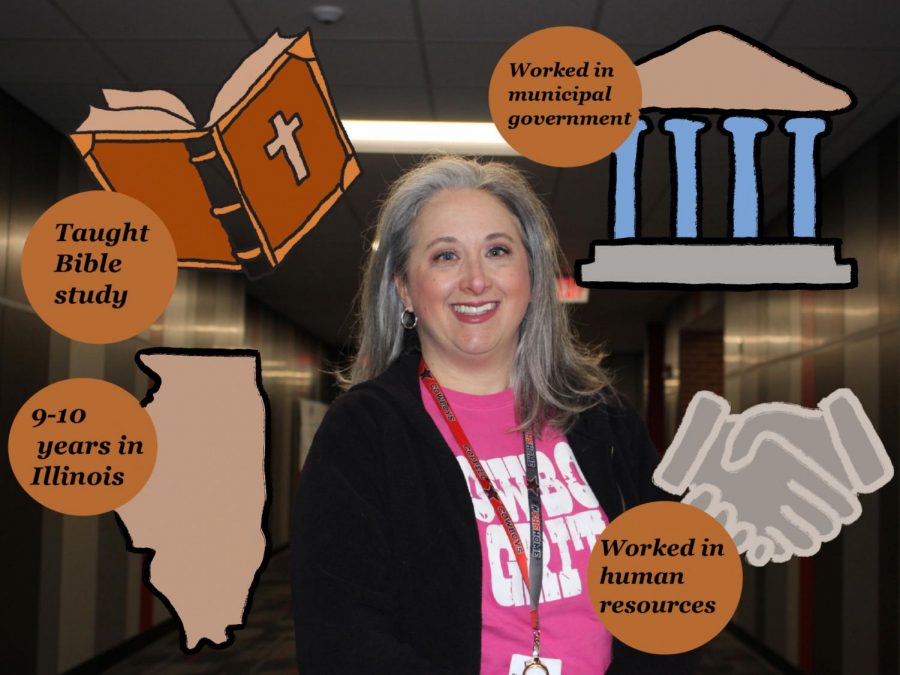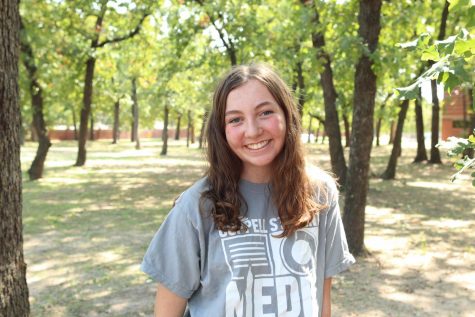Teacher of the Week: Leyendecker normalizing mental illness through caring guidance
Coppell High School AP psychology teacher Kristia Leyendecker has worked at Coppell ISD since 2014. Leyendecker was inspired to get her teaching degree through her nine to 10 years of working in municipal government in Illinois, responsibilities in Human Resources and teaching Bible study.
January 22, 2021
For the past five years, Coppell High School AP psychology teacher Kristia Leyendecker has educated students about the importance of caring about mental health. Leyendecker began teaching as a substitute at Irving Nimitz High School in 2013 before receiving her teaching certificate in the spring of 2014 and starting at CHS that fall.
What inspired you to get your teaching certificate?
It’s funny, because my degree is in political science, and I jokingly say this is my third career because I worked in municipal government for nine to 10 years in Illinois. My responsibilities involved working with commissioners and presenting information. So in a way, I was educating them. I worked in human resources and did the same thing. I also taught Bible studies and did a bunch of volunteer work. It was really a culmination of job experiences and things I enjoy doing.
Through your study of psychology, what is something you have learned that you use in your daily life?
The one thing that has stuck out to me is the connection between our biology and our brain. Our endocrine system impacts our behavior. When somebody acts a certain way, I rethink how I’m going to respond to them because how I would respond to a teenager is entirely different from how I would respond to an adult. Knowing there’s a biological effect makes it easier to understand where they’re coming from and not judge them.
What is your favorite unit to teach?
Clinical and social psychology. When we get to clinical psychology, we get into disorders. I share with my kids that I’ve dealt with social anxiety my entire life. We talk about how normal everyday people are walking around with mental disorders, and there’s such a negative connotation to it. What I hope to do is let kids know that there’s nothing wrong with a mental disorder. We go to the doctor every year for a physical. We get shots, vaccinations and blood tests to make sure we are physically healthy. There is absolutely no reason why we shouldn’t be doing that mentally. Taking care of your mental health is no different than taking care of your physical health.
How would you describe your teaching style?
I believe we should treat students like the pre-adults they are. I care about you, and I’m going to help you be successful. I’m not going to hold back, and I’m not going to mollycoddle you. I’m going to be honest and straightforward with you, but you get some responsibilities and I’m going to hold you accountable. I will walk with you, but I’m not carrying you along.
Follow Trisha (@trishatluri) and @CHSCampusNews on Twitter.











